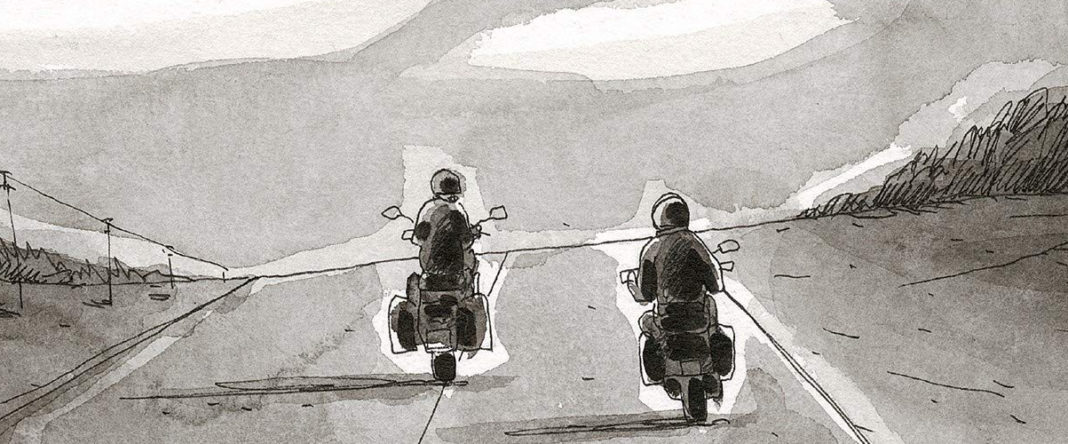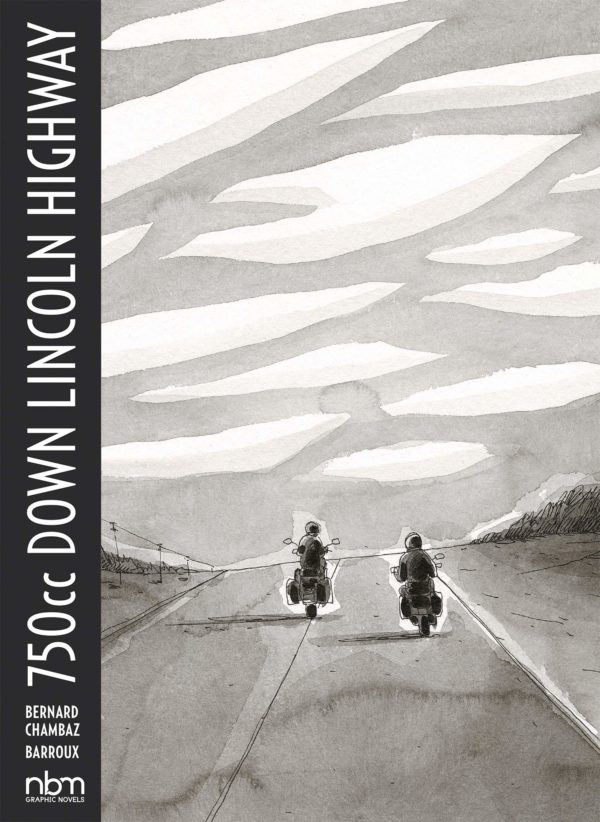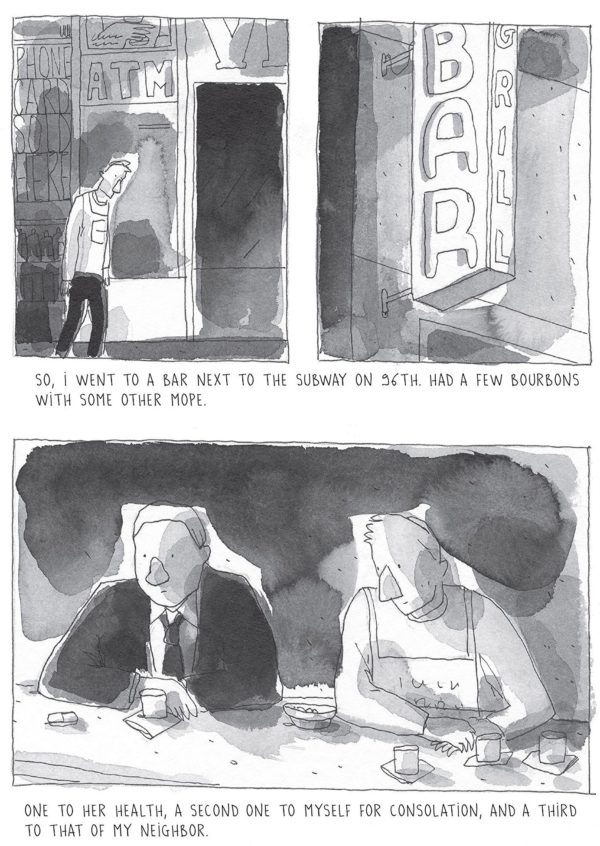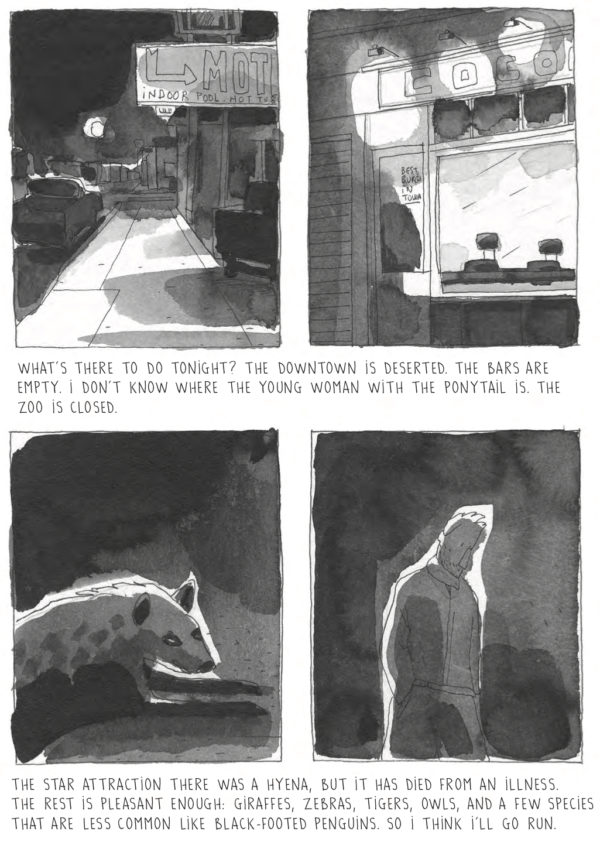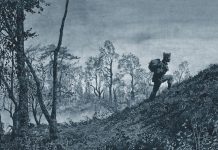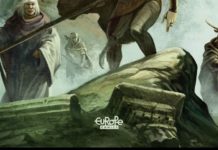750cc Down Lincoln Highway
Written by Bernard Chambaz
Illustrated by Barroux
Lettered by Ortho
Translated by Joe Johnston
NBM
I’m going to confess that as someone who barely leaves his region of the country anymore — the northeast, FYI — Highway 30 was not an immediately recognizable road. The Lincoln Highway is its other name. Still not ringing any bells for me. Not that I’m bragging. I should know just for the joy of knowing things, but I don’t, and so Bernard Chambaz’s 750cc Down Lincoln Highway served as my introduction to the road.
For sad souls who find themselves in the same embarrassing predicament as me, the Lincoln Highway is the first highway to stretch from one coast to another, linking New York City to San Francisco since 1913, though calling it the Lincoln Highway is just nostalgia. It’s mostly just Route 30 with a bunch of other numbered highways filling in wherever Route 30 isn’t the name. Maybe that’s why I wasn’t familiar. It’s no longer a thing.
Chambaz’s road trip memoir begins in New York City as he’s about to run a marathon, but a text he receives from his girlfriend sends him walking away and into a bar. The text says, “We’re finished.” What if it means that she and a friend are finished shopping instead of how he takes it? I’m going to guess he knows her better than I do, especially since these two words are pretty much all we get of her.
We don’t get much more about Ed, either. Chambaz meets Ed in the bar and after telling Chambaz his life story, Ed starts talking about the Lincoln Highway. Something about that portion of the conversation triggers a fight or flight moment in Chambaz and he chooses flight, all the way across America through exotic locales like Pennsylvania, Ohio, Iowa, and Wyoming on a motorcycle.
One thing this all makes me go back to is something common to when I was a kid and I did get to traverse the country a lot more than currently. In the days before the megaplex gas stations with attached convenient stores that offer fancy coffees and pastries, you had either ragged old stores or new, antiseptic, unadorned rest stop structures that sold the general stuff — sodas, snacks, maps, and, of course, postcards. Sodas and snacks are still a thing and maps have managed to justify themselves a bit longer, but postcards? Why are there still postcards? 750cc Down Lincoln Highway reminds me a lot of postcards, but it gives them a purpose by providing them with a context-specific to Chambaz’s motivation for the journey.
Chambaz’s insights can be spare, but also lush in their way. He provides multiple details of what he encounters but leaves out much more in such a way that it gets your mind going. Sometimes you’re pondering the unaddressed history and current events of any location he arrives at, sometimes the real story behind the people he interacts with. Like a postcard, Chambaz’s accounts don’t inform you so much as make you want to encounter these things yourself. They are teasers.
This is not as frustrating as it could be since much of 750cc Down Lincoln Highway is about the mood of travel more than the facts. But Chambaz is an accomplished and much-lauded poet and travel writer in France, and so he knows how to make few words evoke what the page could never directly express, and this is where Joe Johnston’s translation work is particularly effective, maintaining the integrity of Chambaz’s intent while putting them within an appropriate context for this American genre, the self-searching road trip.
Barroux’s illustration is a good match for Chambaz’s words. Barroux does not soberly present the locations but rather washes them in a world-weariness that sometimes manifests as sorrow, other times exhaustion, and further on, loneliness. The splotches of black and gray that hang around the line drawings are like moody manifestations of the soul of America, giving the country texture that matches any traveler’s soul.
Most of the time, though, Chambaz is alone and it’s his thoughts that fill out the tour. And he does buy some postcards near the end of the book, so that question is answered. As to any other, Chambaz is wise enough to know that there are no answers to anything, at least no ultimate answers that provide wide-reaching clarity that makes the road stretched out before without any bumps or unforeseen accidents.


